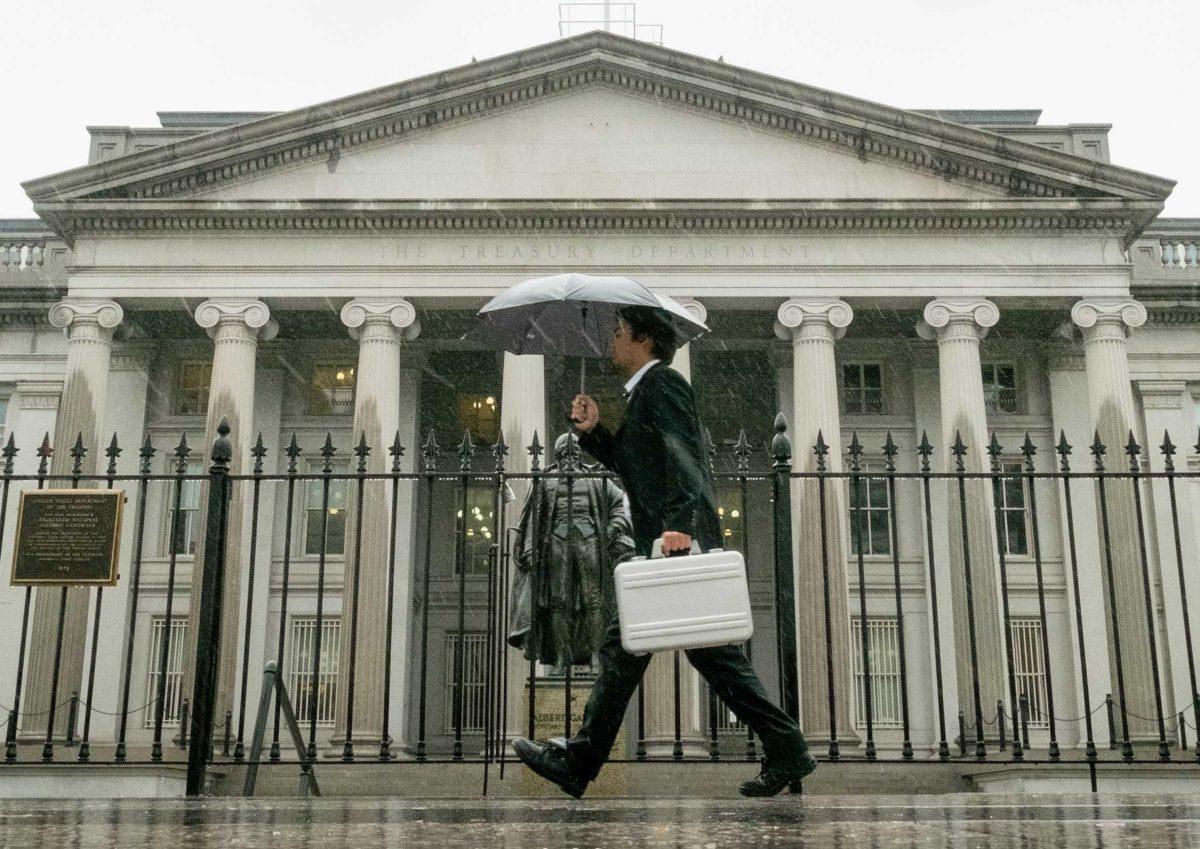You may not realize it, but you owe the government around $53,769. And that number is bound to rise during your lifetime.
Why? Because that is the portion of the federal debt owed by every American citizen.
On Sept. 17, the Congressional Budget Office released a report that said if current policies hold, our federal debt held by the public would be equal to our Gross Domestic Product by 2038.
The report also claimed that under current laws, government revenue will
increase to 19.5 percent of the GDP over the same span, but also said that spending will grow to 26 percent of GDP. In
other words, we will be running a 6 percent deficit.
This means when we are in our
mid-40s, this country will owe as much money as its economy can generate. This is a dire problem, but solutions seem elusive to this Congress and those that came before it.
On Oct. 16, we raised the debt ceiling — or the borrowing limit — just so that we would not default and send the global economy into turmoil. However, Congress still needs to address the problem of the debt so our generation’s prosperity is not swallowed whole.
Since 2007, the debt’s percentage of the GDP has doubled to 73 percent. This is due to two wars and the economic crisis that began in the fall of 2008.
However, in the coming decades,
entitlement spending — that’s Medicare, Social Security, et cetera — will cause
that number to rise all the way to 100 percent.
Our 65-and-over population will nearly double by 2035, according to Robert Samuelson, an economics columnist at The Washington Post. This means rising health care costs for an aging population as well as a large drain on our Medicare and Social Security reserves.
Spending on these entitlements will double by 2038, according to the CBO.
But our government has time and
time again eschewed solutions to reign in the ballooning number, and they continue to operate on a deficit year after year.
The only time it is even mentioned is when Republicans or Democrats need political capital, so they parade around the debt to elicit public response and show the complacency of the other party.
But if they don’t start to fix the problem in the upcoming budget conference, both parties will be found wanting.
The solutions to the problem differ depending on what end of the
political spectrum you rest. Republicans argue that entitlements need to be slashed, while Democrats contend that we need to raise taxes.
Go figure.
But there isn’t a clear-cut solution — only the fact that there is a major problem our lawmakers must address.
Organizations like Fix the Debt seek to make this crisis public so
our elected officials can fix the problem. It is composed of officials, including
former senators and governors, who have come to grips with the gravity of the situation.
There is no way in hell one of our political parties is going to get its way when it comes to balancing this country’s budget and eventually chipping away at the debt.
As college students who will one day carry the burden of the debt, we can only hope our current politicians can come to some kind of compromise before we are in further over our heads.
If not, then we have the power to vote them out of office until we elect people who are willing to do their jobs.
By the time our debt is the size of our economy, the United States’ credit will be sufficiently harmed.
Congress has done its job to avoid default. It’s time to make sure it will never be an issue again.
Eli Haddow is a 20-year-old English and history junior from New Orleans.
Head to Head: Numbers don’t lie, the debt needs to be addressed
By Eli Haddow
October 23, 2013
In this Thursday, Oct. 10, 2013 photo, a pedestrian walks past the U.S. Treasury Building in Washington on a rainy day. The national debt actually reached the limit in May 2013. Since then, Treasury Secretary Jacob Lew has made accounting moves to continue financing the government without further borrowing. But Lew says those measures will be exhausted by Thursday, Oct. 17, 2013. The government will then have to pay its bills from its cash on hand — an estimated $30 billion — and tax revenue. (AP Photo/J. David Ake)





